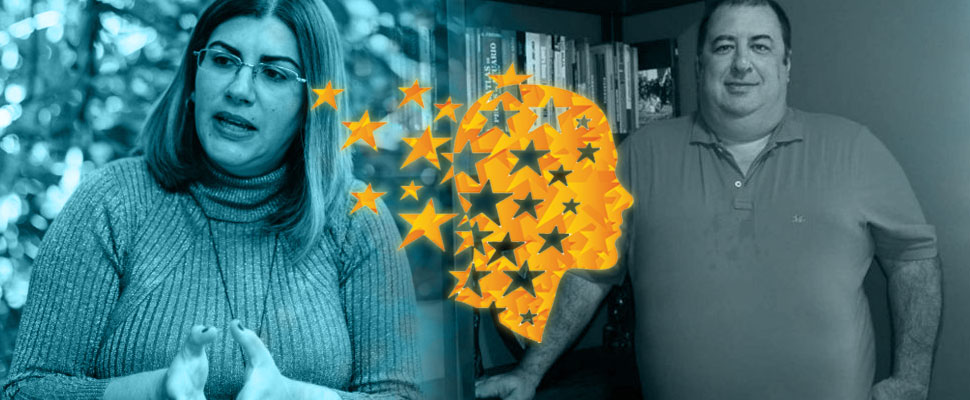These are the 2 Latin finalists for the World’s Best Teacher Prize
Listen this article
The Global Teacher Prize is the most important award for teachers in the world. In this edition, 2 Latin Americans are among the 10 finalists

Since 2015, the Varkey Foundation, an organization focused on "improving education standards around the world", awards the World's Best Teacher Prize, also known as the "Nobel" of education. The award seeks to recognize annually an exceptional teacher who has contributed outstandingly to his profession with novel ideas; the winner is awarded a prize of US $1 million. In this 2019 edition, 10,000 professors were nominated. 8 Latin Americans were in the Top 50 and 2, within the Top 10.
Leer en español: Estos son los 2 latinos finalistas para el Premio al Mejor Profesor del Mundo
The actor Hugh Jackman was in charge of naming and paying a small tribute to the work of the teachers.
Read also: 5 apps that will help you improve your study habits
Débora Garofalo, Municipal School of Fundamental Teaching Almirante Ary Parreiras, Sao Paulo, Brazil
Débora Garofalo teaches in a school on the outskirts of Sao Paulo, near four of the most famous favelas in the world. When she started teaching at this institution, she noticed that her students were not at all related to the technological world, which would be a disadvantage in the future regarding work globally. Being in a socially vulnerable area, they did not have the necessary equipment to create a program that could direct their students, and children were directly affected by the violence of their local environment.
Garofalo decided to take inspiration from her surroundings and together with her students she created a local map from photographs. With this information, they developed a robotics program that seeks to turn waste into technological prototypes called Junk Robotics, promoting sustainability.
In addition, in the process, she offered open classes on sustainability and waste management to the local community, which is why she has not only contributed to her specific field but has also opened herself to the place where her students live, to the locality that she sees, directly affected by them and their education.
From her idea of 'creative culture', Garofalo has transformed the lives of the 2,000 children who have participated in the program, and have converted 700 kg of what anyone would see as simple trash into airplanes, toys, cars, and robots. At the same time, they are learning from the basics of electronics to the most complex robotics.
Martín Salvetti, Secondary Technical School No. 5, Buenos Aires, Argentina
Martín Salvetti is a teacher at the school where he studied, so he could understand first-hand what the children's needs were, as well as being able to create a strong connection with them because there was not much difference in age between them and him. Wanting to contribute to his students, Salvetti organized a soccer club on weekends for students and staff of the school, with which he managed to establish connections outside the classroom and could form new ideas from being active.
That led him to enroll his school in an art program with which they earned enough resources to implement a radio, film and a band project. Against all odds, the project was implemented and, in 2007, Salvetti and his students won a national contest for the work done, which gave them enough supplies so that in 2008 they could make their first live broadcast. Since then, the radio has not stopped transmitting a single moment. It works 24 hours a day, 7 days a week.
His project not only contributed to his students, but the radio is mainly a space in which students from all over the country can obtain constant learning and open their minds to the fact that education should not be something obligatory, but a tool to change the world and themselves. In addition, the radio has not been alien to the social and political situation of the world and of Argentina. One of the most important shows was the interview that was done to the Mothers of the Plaza de Mayo, with which the students could learn first hand about the past of their country.
On the radio, they also discuss environmental and sustainability issues.
LatinAmerican Post | Vanesa López Romero
Translated from "Estos son los 2 latinos finalistas para el Premio al Mejor Profesor del Mundo"





